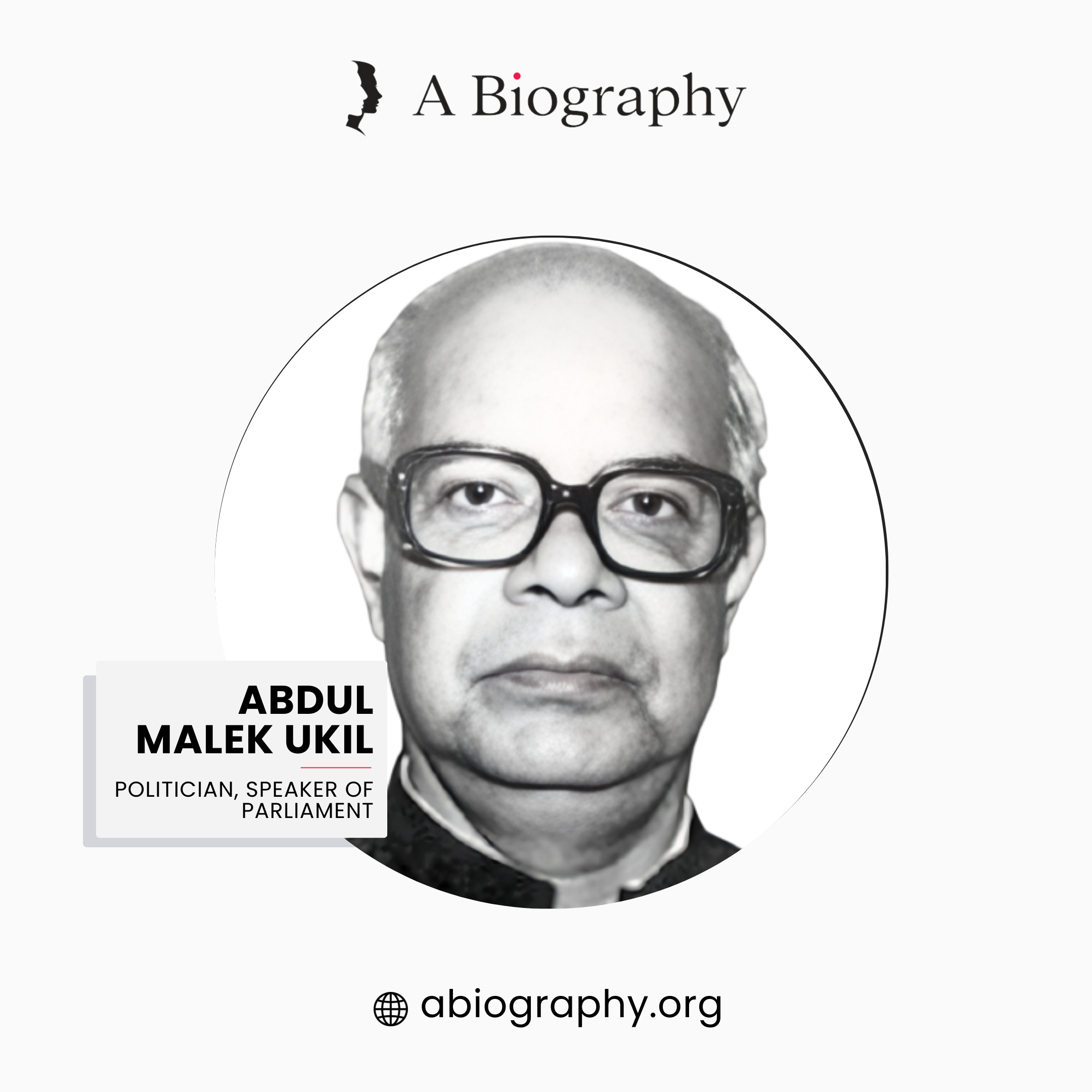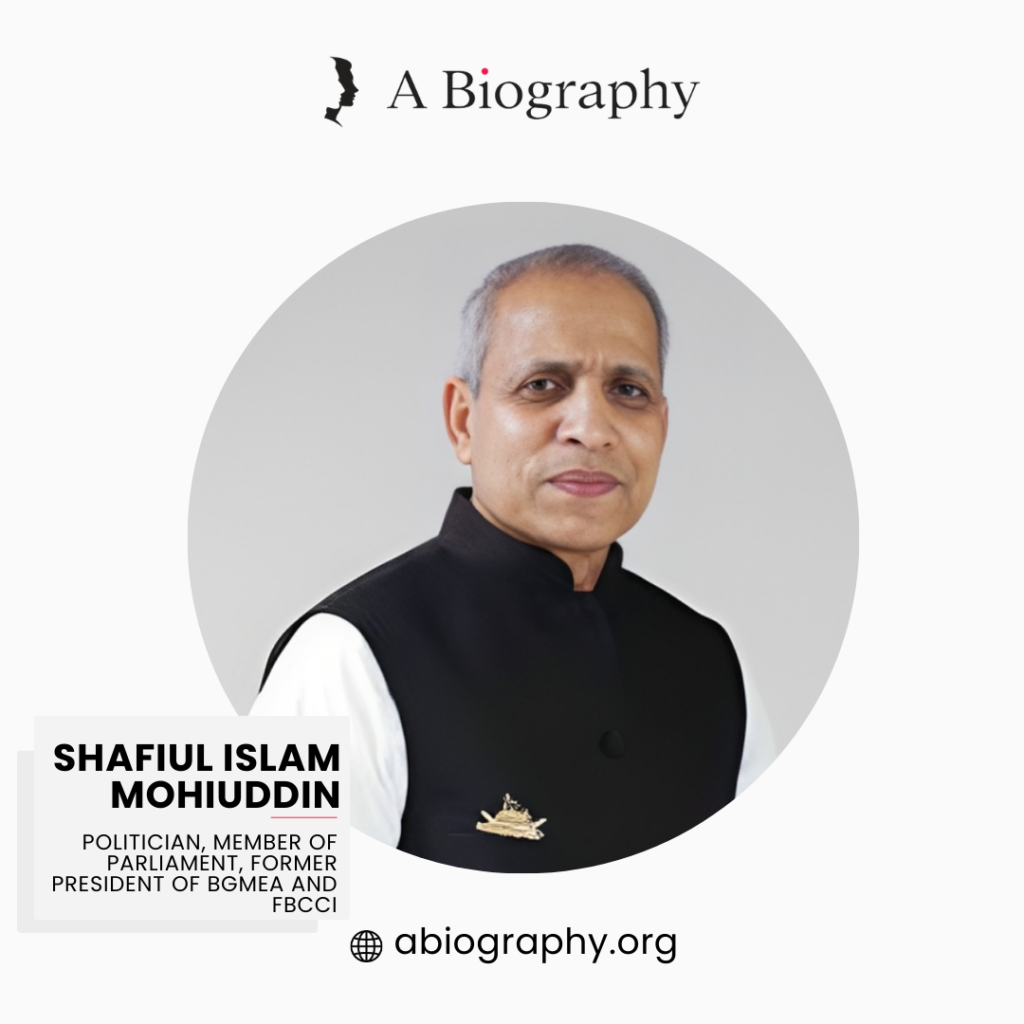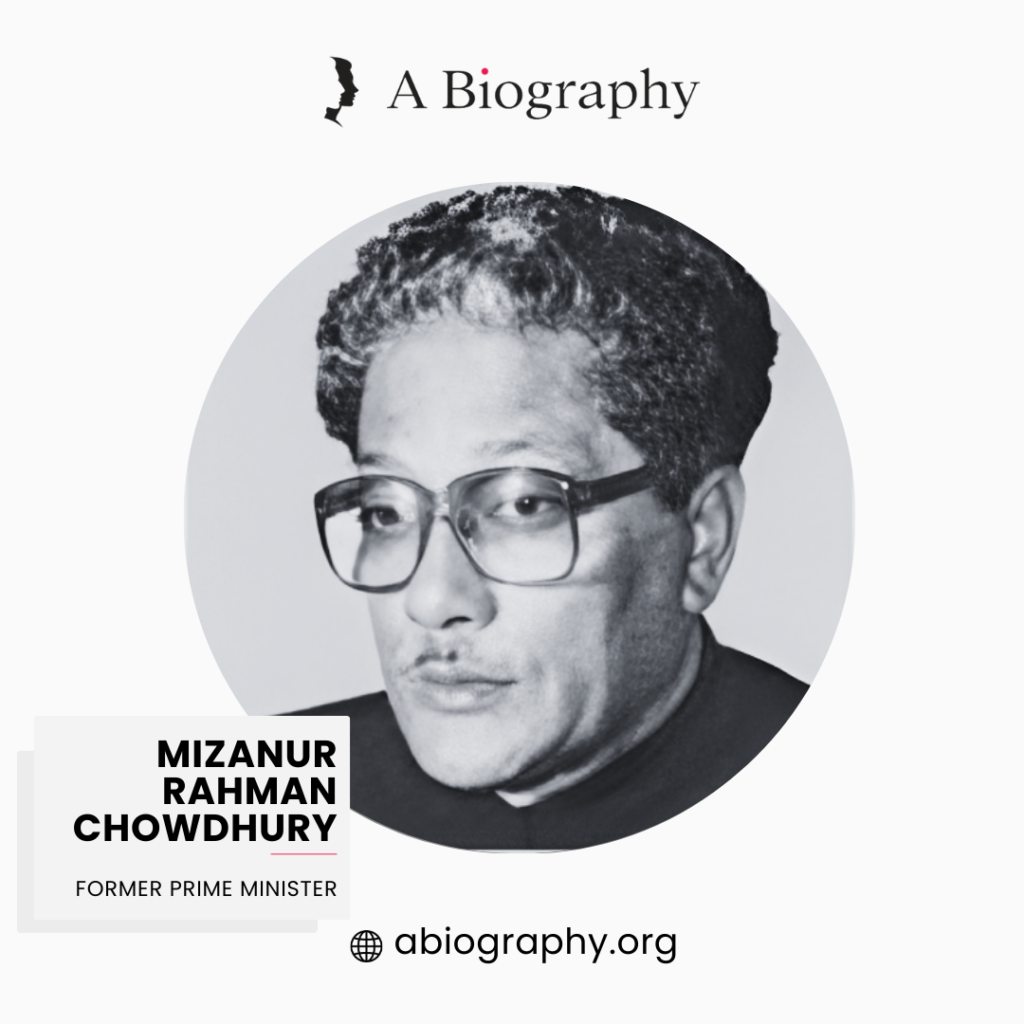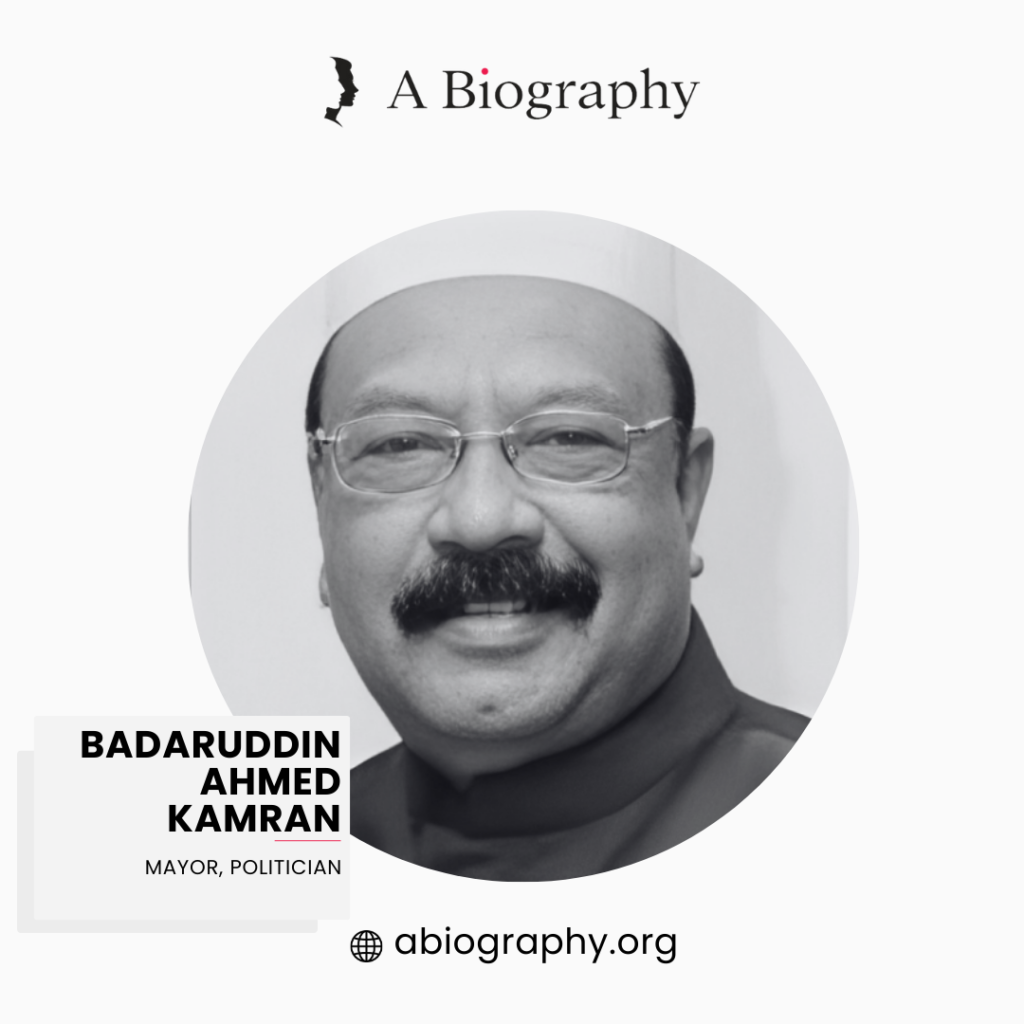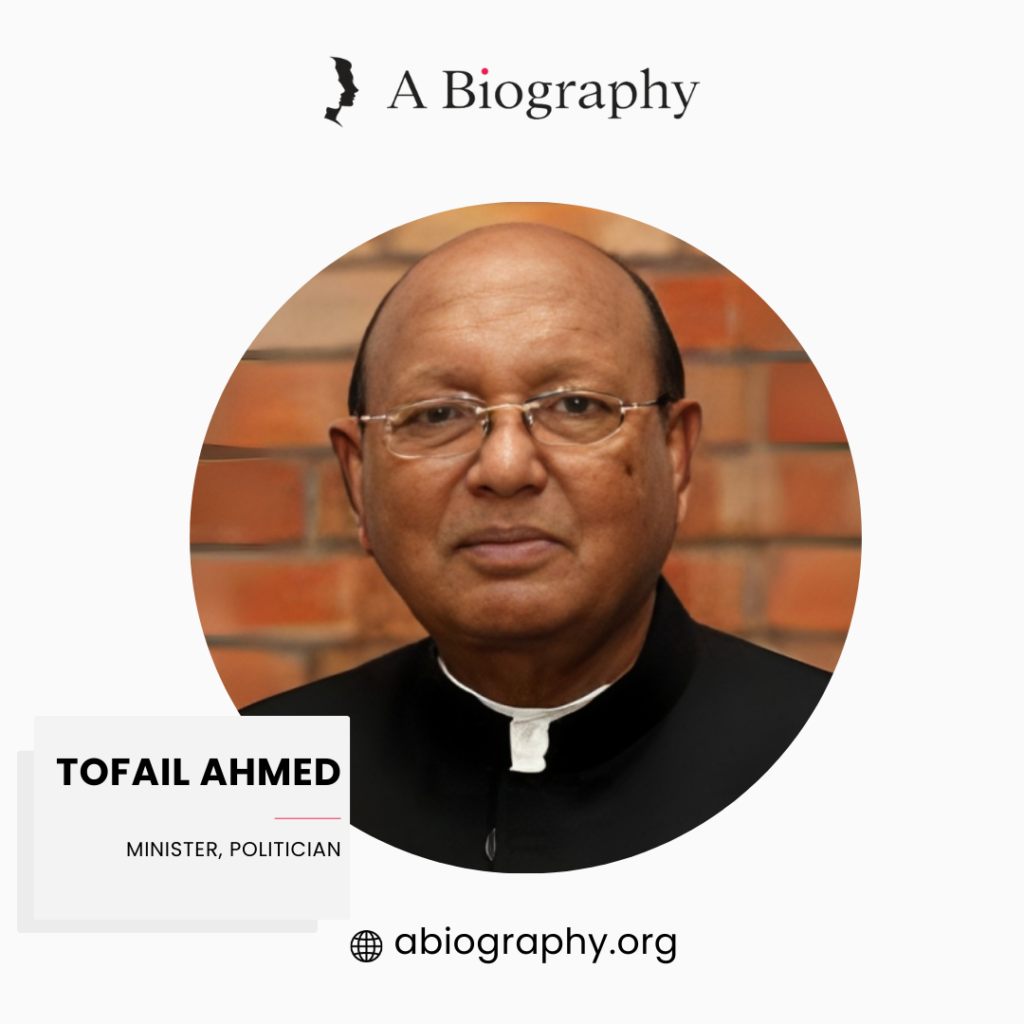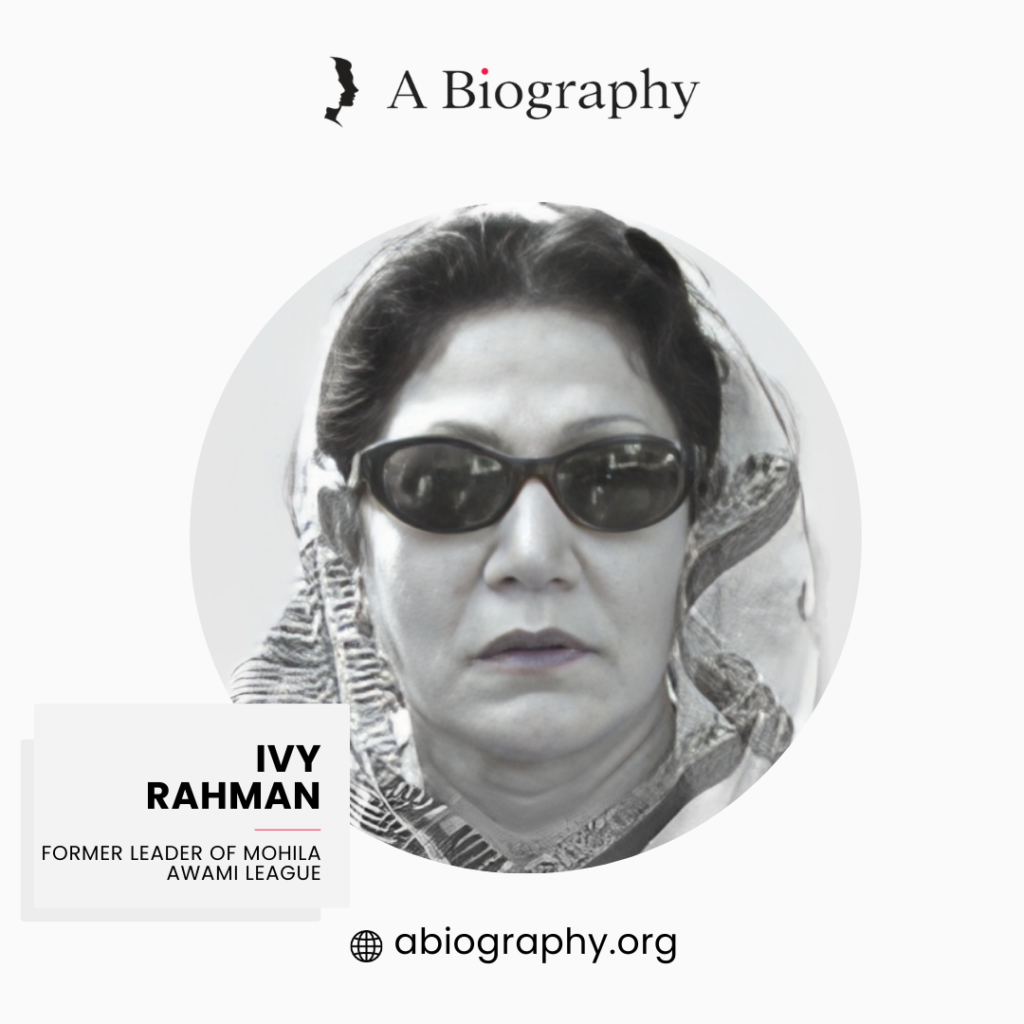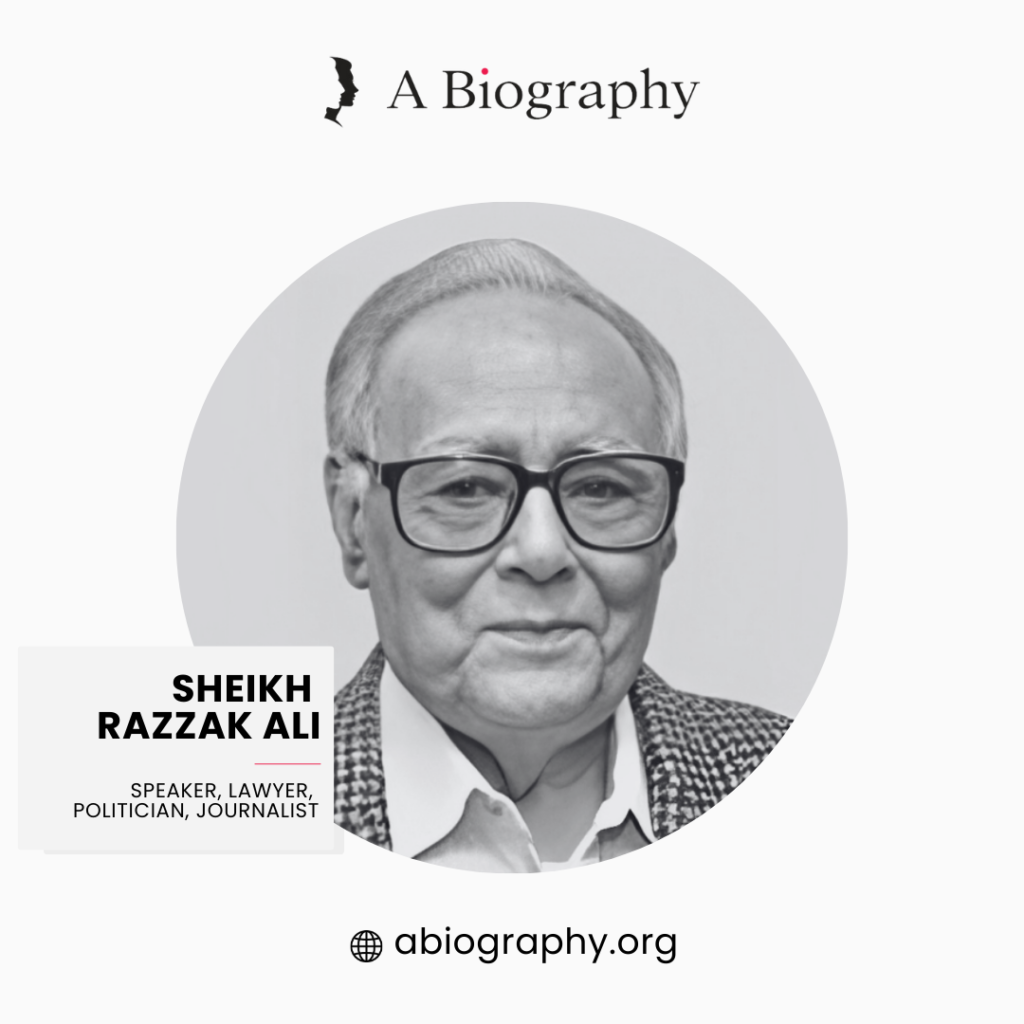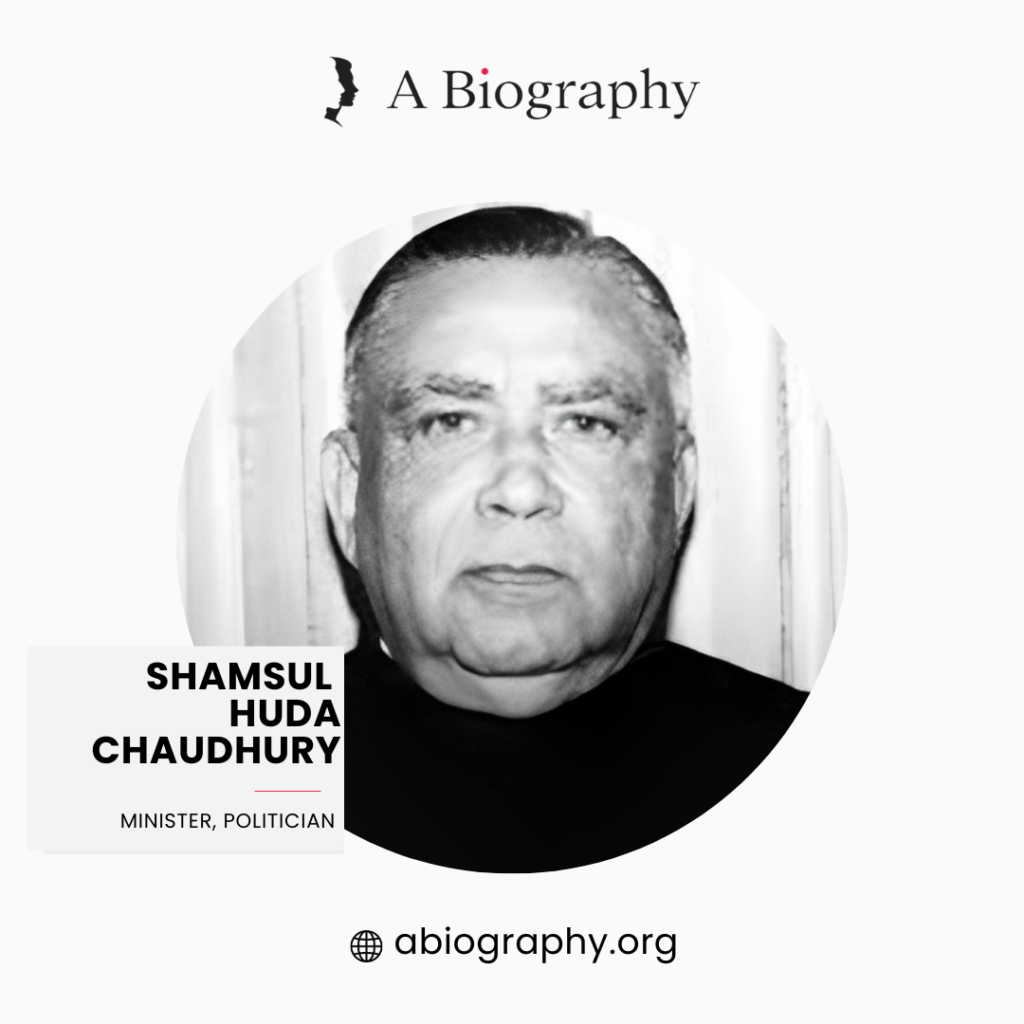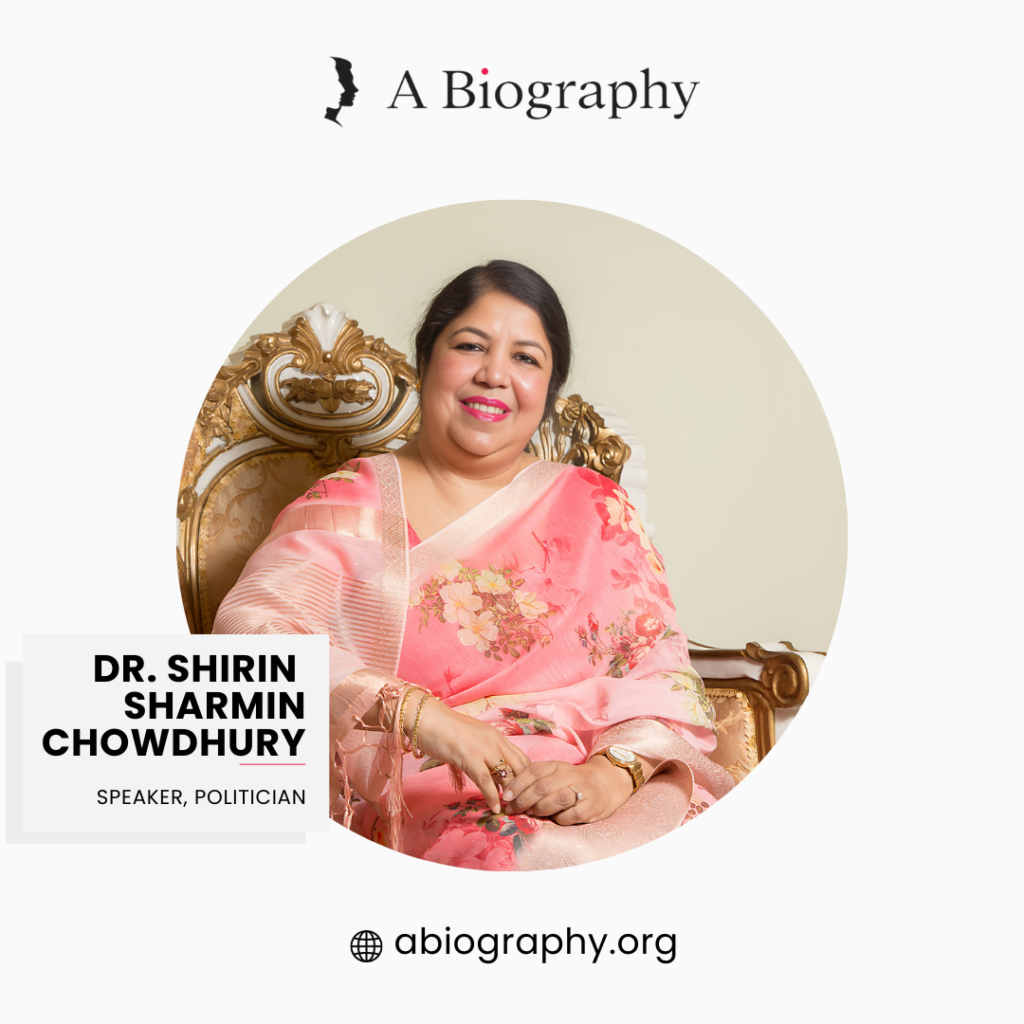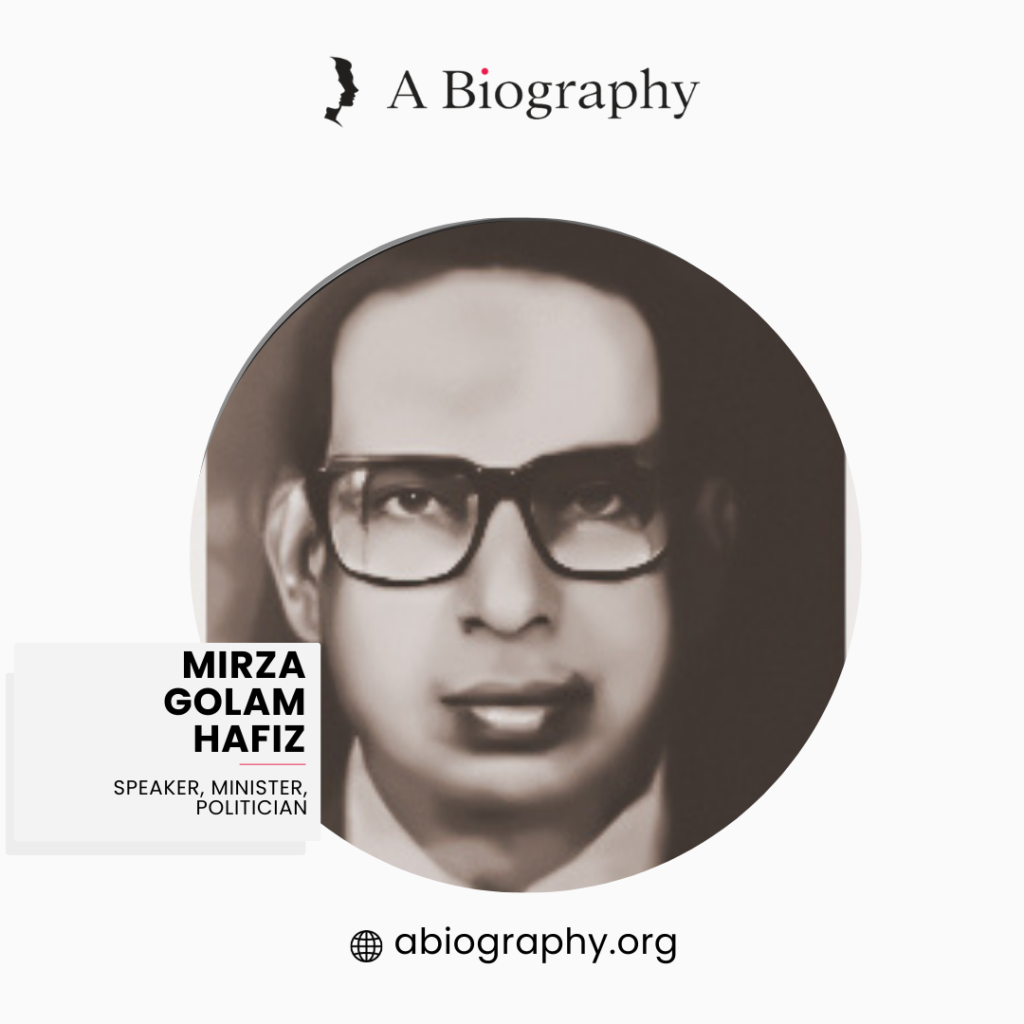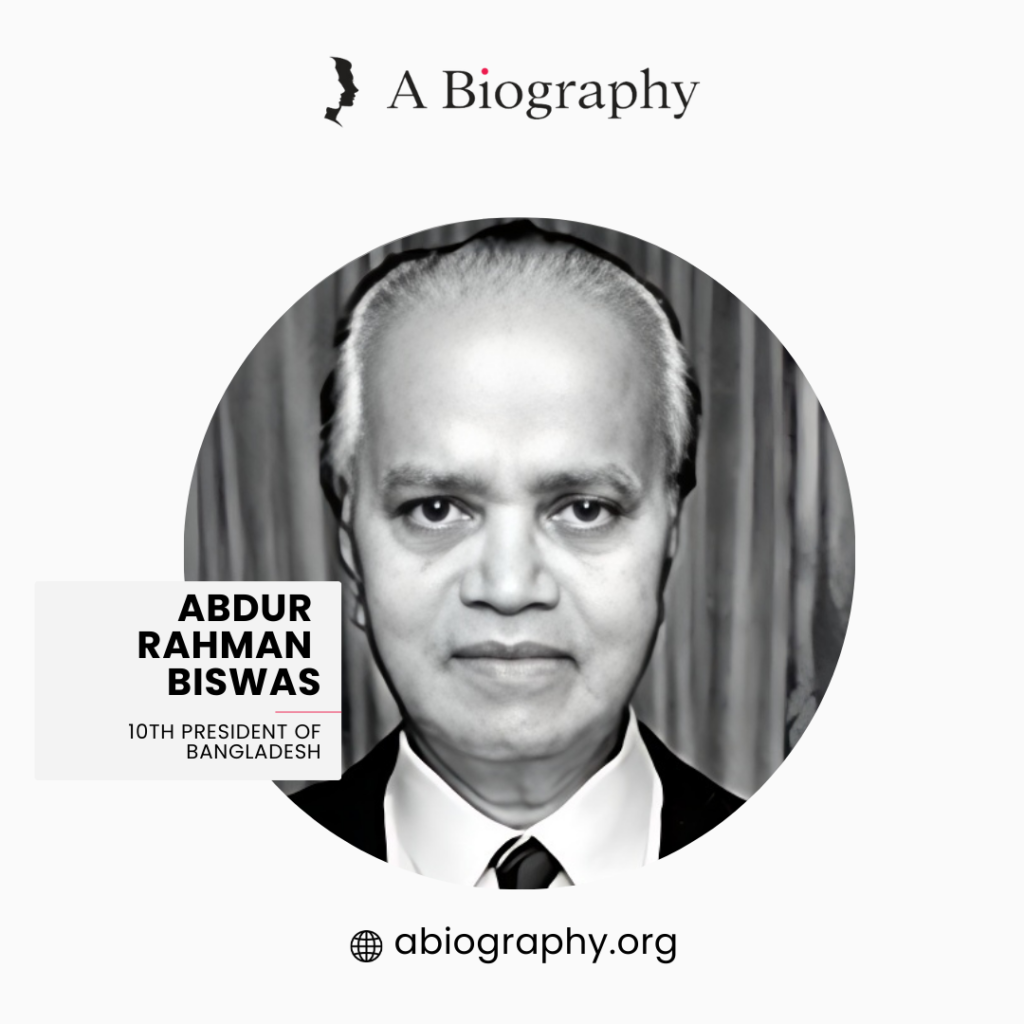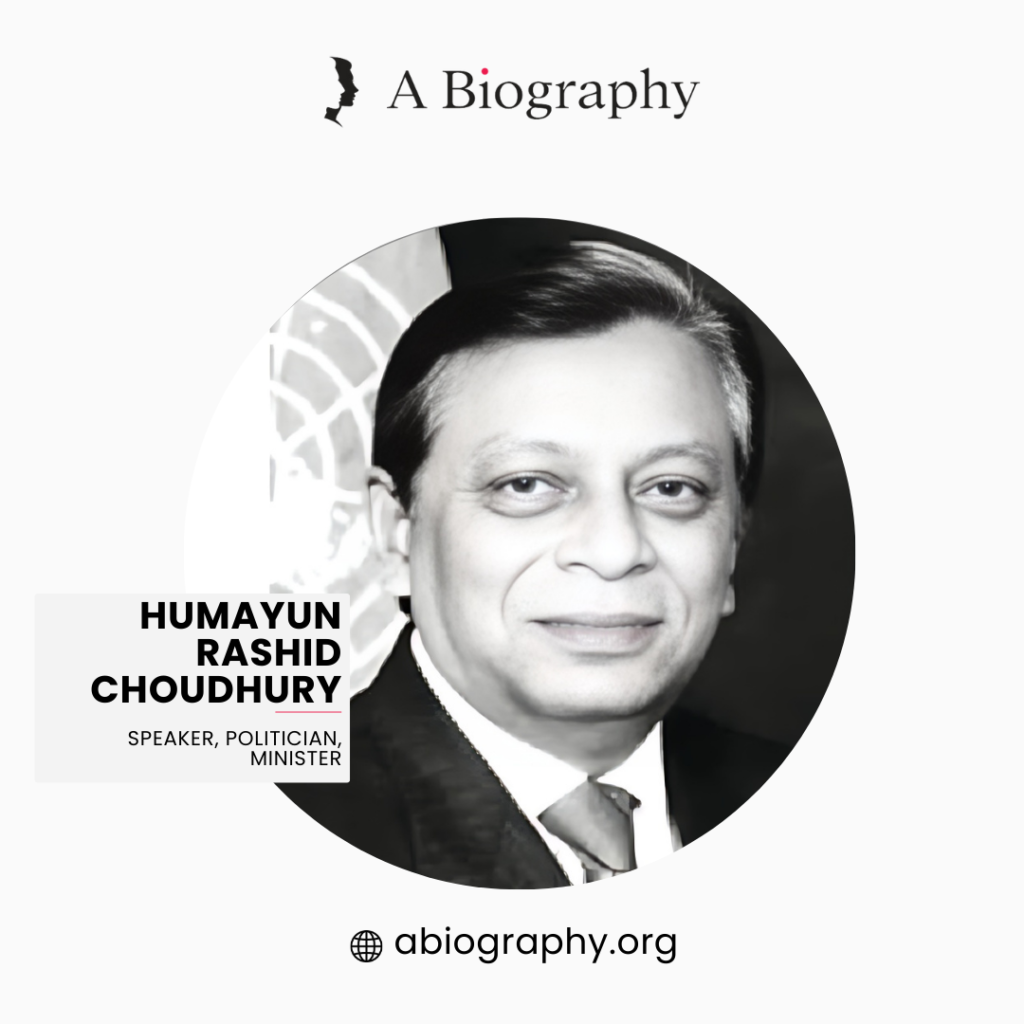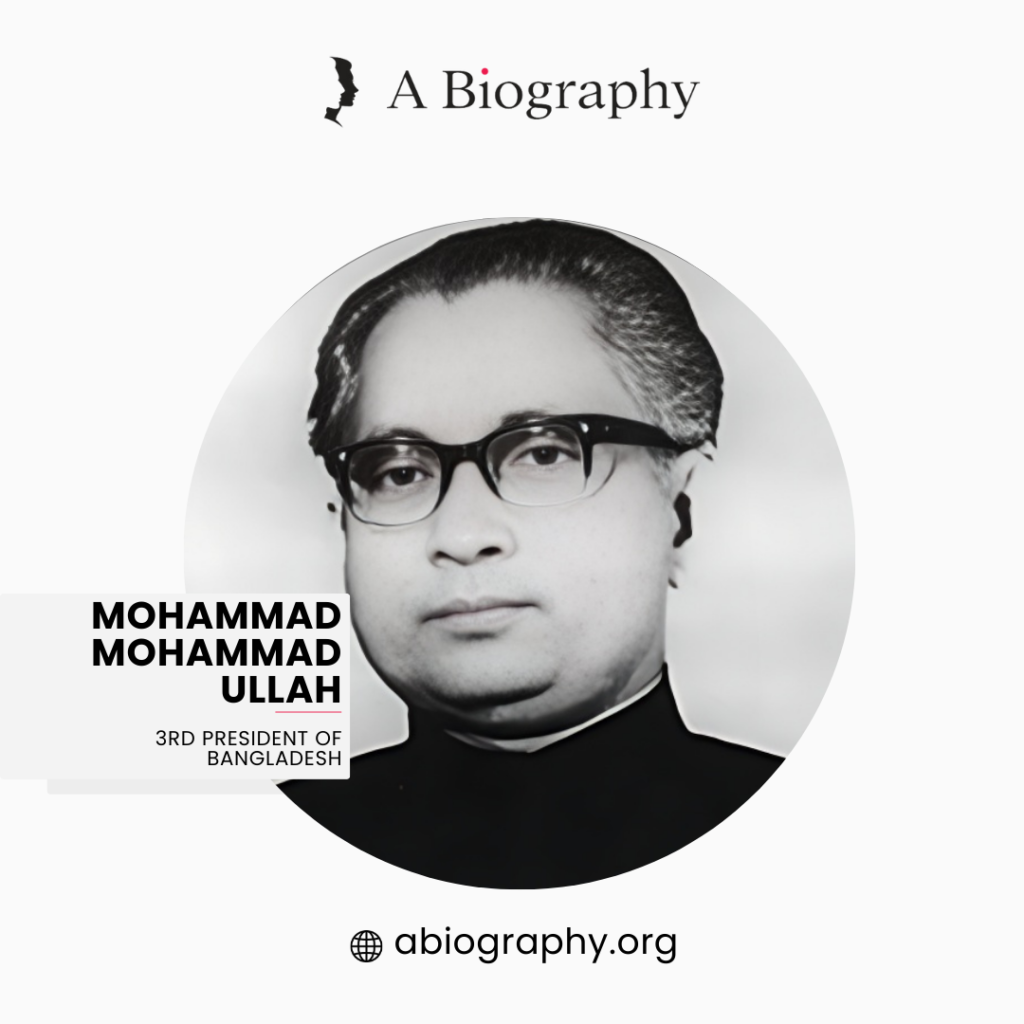BIOGRAPHY OF ABDUL MALEK UKIL
Speaker, Politician, Minister
OCTOBER 1, 1924 – OCTOBER 17, 1987
Table of Contents
ToggleIntroduction
Abdul Malek Ukil (October 1, 1924 – October 17, 1987) was a highly respected and influential figure in Bangladeshi politics. He is known for his exceptional contributions as a speaker, politician, and minister.
Born in the picturesque Rajapur village in the Noakhali District of Bangladesh, Abdul Malek played a crucial role in shaping the Constitution of Bangladesh. This speaks volumes about his deep commitment to the nation’s foundation.
Abdul Malek’s political journey began as one of the founding members of the East Bengal Muslim Students League. It was an organization dedicated to promoting the interests of Muslim students in the region.
His involvement in this league laid the groundwork for his subsequent political accomplishments. Moreover, it established him as a steadfast advocate for the rights and well-being of the people he represented.
Throughout his illustrious career, Abdul Malek tirelessly worked to uplift the lives of the citizens of Bangladesh. His ability to articulate complex issues with clarity and conviction earned him widespread admiration and respect.
Moreover, Abdul Malek Ukil’s contributions extended beyond his role as a speaker and politician. He served as a minister in the government of Bangladesh. He played a vital part in shaping policies and making decisions that positively impacted the nation.
His leadership and vision were instrumental in navigating the young country through challenging times. It helped to consolidate its political and social foundations.
Life of "Abdul Malek Ukil" At a Glance
◉ Real Name: Abdul Malik
◉ Date of Birth: October 1, 1924
◉ Place of Birth: Rajapur Village, Noakhali Sadar Upazila, Noakhali District
◉ Date of Death: October 17, 1987
◉ Place of Death: Dhaka
◉ Father’s Name: Maulana Mohammad Munshi Chand Mia
◉ Mother’s Name: Nurunnesa
◉ Education:
➢ Passed IA Examination from Magura College in Jessore district in 1947
➢ Obtained MA degree from Dhaka University in 1950
➢ Obtained LL.B from Dhaka University in 1952
◉ Career:
➢ Joined the Noakhali district bar in 1952
➢ Elected to represent East Pakistan in the provincial assembly in 1954
➢ Elected as a member of the National Assembly in 1970
➢ Elected as a member of Parliament in 1972
➢ Appointed as the Speaker of Parliament in 1975
◉ Religion: Islam
◉ Married to: Mrs. Sabura Khatun
◉ Children:
Sons:
➢ Gulam Mohiuddin Latu
➢ Baharuddin Khelon
Daughters:
➢ Fatema Begum (Ruby)
➢ Amena Begum (Baby)
➢ Nurun Nahar (Lily)
➢ Nurunnesa (Maya)
➢ Lima Malek
Early Life and Political Awakening
Abdul Malek Ukil, a prominent figure in the history of Bangladesh, was born on October 1, 1924, in Rajapur village. This village is located in the Noakhali District of present-day Bangladesh. His father was Maulana Mohammad Munshi Chand Mia, and his mother was Nurunnesa.
From a young age, he displayed a great interest in politics and a deep sense of social justice. His early experiences and observations of the socio-political climate in the Indian subcontinent would shape his future endeavors.
Active Participation in the Independence Movement
With a firm conviction in the cause of independence, Abdul Malek actively engaged in the independence movement of the Indian subcontinent. He dedicated himself to campaigning for Pakistan in Bengal, Bihar, and Assam, advocating for establishing a separate Muslim-majority state in 1946.
His vigorous support for Pakistan demonstrated his steadfast belief in the vision of a united subcontinent. Moreover, he also acknowledged the importance of the rights and aspirations of the Muslim community.
Challenges and Imprisonments
Abdul Malek’s unshakeable dedication to his political ideals led him to face numerous challenges and confrontations. During his student days, he encountered several arrests and imprisonments, standing up for the causes he believed in.
One such instance was his arrest during the Language Movement on March 11, 1948. It is a historical movement that fought for the recognition of Bengali as one of the state languages of Pakistan.
Additionally, on February 22, 1952, and June 1954, Abdul Malek faced imprisonment under the East Bengal Public Safety Ordinance. The British colonial administration enacted this repressive law to suppress dissent.
These periods of confinement further fueled his resolve to fight for the rights and welfare of the people he represented. Moreover, they strengthened his commitment to social and political justice.
Education
Abdul Malek Ukil’s educational journey commenced at Noakhali Ahmadia High Madrasah. There he exhibited remarkable proficiency in his Madrasa Examination.
This early success laid the groundwork for his subsequent academic pursuits.
His thirst for knowledge led him to Magura College in Jessore District, where he passed his IA Examination in 1947. This accomplishment marked an essential milestone in his educational path, further propelling him toward his aspirations.
In his quest for academic excellence, Abdul Malek Ukil’s next destination was the renowned University of Dhaka. In 1949 he achieved another milestone by obtaining a BA degree from this prestigious institution.
Eager to expand his intellectual horizons, he continued his studies at the same university, securing an MA degree the following year. Abdul Malek’s dedication to his education was sincere. He further augmented his academic achievements by pursuing an LL.B degree from the University of Dhaka.
His diverse educational background gave him a solid foundation for future endeavors. The multifaceted nature of his studies, ranging from Islamic education to liberal arts and law, equipped him with a comprehensive skill set and a broad perspective.
This well-rounded education shaped his character and fostered his ability to contribute meaningfully to society. The educational institutions he attended, from Noakhali Ahmadia High Madrasah to the University of Dhaka, played a crucial role in nurturing his intellectual growth and molding him into the influential figure he would become.
Professional Career
After completing his education, Abdul Malek Ukil embarked on his professional career as an advocate. After graduating, he started practicing law at the Noakhali District Bar in 1952. There he honed his legal skills and gained valuable experience in the field.
Recognizing his talent and dedication, he became a member of the prestigious Dhaka High Court Bar in 1962, further expanding his legal expertise.
Abdul Malek Ukil’s years of practice as an advocate allowed him to develop a deep understanding of the legal system and its intricacies. His solid commitment to justice and upholding the rule of law significantly shaped his professional journey.
These qualities would later prove instrumental in his remarkable triumphs in the political realm. There he would continue to champion the cause of justice and fight for the rights of the people.
Abdul Malek Ukil's Political Journey: A Legacy of Dedication and Service
Abdul Malek’s political career commenced with his pivotal role as one of the founding members of the East Bengal Muslim Students’ League. There he dedicated himself to the cause.
His strong commitment and dedication earned him various leadership positions within the Awami League. This included being the President of the Noakhali district Awami League in 1953.
Additionally, he served as a central executive committee member from 1962 to 64, contributing to the party’s growth and ideology.
Rising Influence and National Representation
As years passed, Abdul Malek’s political influence continued to ascend, establishing him as a prominent figure in Bangladeshi politics.
His contributions were recognized when he secured a seat in the East Pakistan Provincial Assembly in 1956, 1962 and 1965 and the Pakistan National Assembly in 1970.
Abdul Malek Ukil was elected as one of the nine Awami League Parliamentary Board members in 1969. He attended the round table conference in Lahore alongside Bangabandhu Sheikh Mujibur Rahman and traveled together to Karachi.
In 1964, Abdul Malek actively campaigned for Fatema Jinnah, supporting her successful bid against Ayub Khan in Noakhali. During 1965-66, he held elected positions on the Bar Councils of East Pakistan and Pakistan.
When Mujib was arrested in the Agartala Conspiracy Case, Abdul Malek Ukil, the opposition leader, passionately questioned the government. This query resonated with the entire nation, reflecting their collective emotions.
All these positions provided him with a platform to advocate for the interests of his constituents. Moreover, they assisted him in working toward the betterment of the nation as a whole.
Resilience and Sacrifice During Movement and War
Abdul Malek Ukil’s sincere support for the causes he believed in was evidenced by his involvement in significant movements and conflicts. During the Six-Point Movement, he courageously stood up for the rights and aspirations of the people, leading to his arrest and detention.
Furthermore, Abdul Malek actively participated in the Bangladesh Liberation War. He dedicated his efforts to the Relief and Rehabilitation Committee and wholeheartedly advocated for international support.
His profound commitment and sacrifices during these challenging times exemplified his tireless dedication to the principles he held dear.
Shaping the Nation’s Future
Abdul Malek Ukil’s contribution to the political landscape of Bangladesh extended beyond his involvement in movements and conflicts. His role in drafting the Constitution of Bangladesh reflected his profound understanding of legal matters and his commitment to shaping the nation’s governance.
Throughout his illustrious career, he held several ministerial positions, including Minister of Health and Family Planning and Minister in charge of Home Affairs.
In these capacities, Ukil utilized his extensive knowledge to make remarkable contributions to the welfare and progress of the nation.
Key Political Positions of Abdul Malek Ukil After the Liberation War
After the war ended, the developing country of Bangladesh faced numerous challenges. Leaders like Abdul Malek Ukil came forward to lift this country. The experience he gained throughout his career came in handy for the whole nation.
Dedication to Healthcare: Enhancing the Healthcare Sector
Recognizing the significance of a robust healthcare system, Abdul Malek Ukil took on the responsibilities of Health Minister in 1972. His tenure was marked by tireless efforts to
⬤ Improve the healthcare infrastructure
⬤ Expand access to quality medical services
⬤ Address pressing public health issues
⬤ His initiatives have played a pivotal role in enhancing Bangladesh’s healthcare sector, benefitting countless needy citizens.
Role as Home Minister: Ensuring Safety and Combating Challenges
As he became the Home Minister of Bangladesh in 1973, Abdul Malek Ukil demonstrated a firm dedication to public service. His role in maintaining law and order, ensuring the safety of citizens, and addressing various challenges faced by the nation was truly commendable.
Abdul Malek’s firm stance against corruption and relentless efforts to strengthen the security apparatus earned widespread appreciation.
Election as Speaker of Jatiya Sangsad: Upholding Ideals
In 1975, Ukil’s outstanding leadership led to his election as the Speaker of the Jatiya Sangsad, the National Parliament of Bangladesh. This prestigious position showcased his fellow politicians’ respect and trust for him.
As Speaker, he demonstrated an unshakeable commitment to upholding principles and ensuring fair representation for all members of Parliament.
Prominent Leader in Bangladesh Awami League: Commitment to Party’s Success
Abdul Malek Ukil remained actively engaged in political activities throughout his political career. In 1978, he became the President of the Bangladesh Awami League, solidifying his position as a prominent leader within the party.
Even when Sheikh Hasina took over as the leader of the Awami League in 1981, he served as the Acting President of the Council. This illustrates his dedication to the party’s success.
Despite his deteriorating health, Abdul Malek’s sincere commitment to serving the people and advocating for their rights remained steadfast.
Personal Life
Ukil, in terms of his personal life, was married to Mrs Sabura Khatun. Together they had a loving family consisting of two sons and five daughters. Their first son, Gulam Mohiuddin Latu, also has three sons: Mehedi Malek Sajib, Tanzil Malek, and Fahad Malek.
Their second son, Baharuddin Khelon, has two daughters and one son named Faiha Bahar, Nabiha Bahar, and Ryan Bahar Malek, respectively.
The five daughters of Ukil and Sabura Khatun were named Fatema Begum, known as Ruby; Amena Begum, affectionately called Baby; Nurun Nahar, also known as Lily; Nurunnesa, who goes by Maya; and Lima Malek.
It was a large and close-knit family that cherished their relationships and shared countless precious moments together.
Abdul Malek had a rich personal life outside of politics and was actively involved in social and cultural institutions. He served as the Secretary of the Art Council of Pakistan and the Public Library of Noakhali District.
Additionally, he made significant contributions to education by founding institutions like
⬤ Noakhali College
⬤ Maijdi Girls High School
⬤ Maijdi Ideal High School
⬤ Badher Haat Abdul Malek College
He had a deep interest in reading and collecting autobiographies of notable individuals. Ukil performed Umrah in 1979 and embarked on a Hajj pilgrimage in 1983.
A Legacy of Service and Advocacy
Abdul Malek Ukil’s untimely demise in Dhaka on October 17, 1987, brought profound sorrow to the nation. He left behind a legacy of service and activism that inspires future generation leaders in Bangladesh.
His remarkable contributions to politics and governance remain a cornerstone of the country’s history. They remind us of the importance of visionary leadership and he pursuit of a better, more prosperous nation.
Commemorating Abdul Malek Ukil
His memory is commemorated through various avenues in Bangladesh to honor Abdul Malek’s contributions. One unique tribute is the establishment of Abdul Malek Ukil Medical College in Noakhali.
It’s a testament to his commitment to improving healthcare and ensuring access to quality medical education for the region’s people.
Moreover, there is a hall at Noakhali Science and Technology University (NSTU) named Abdul Malek Ukil Hall. This shows that the people of Bangladesh don’t forget their national heroes.
Conclusion
Abdul Malek Ukil’s life and attainments left an indelible mark on the history of Bangladesh. He was a man of immense integrity, dedication, and vision. His contributions as a speaker, politician, and minister played a pivotal role in shaping the nation’s political landscape and base.
He held several ministerial positions, including Health Minister and Home Minister. There he actively worked to improve the healthcare system, address mass health problems, retain laws and directives, and ensure the safety of citizens.
His role as the Speaker of the Jatiya Sangsad illustrated his commitment to upholding standards and ensuring fair representation for all members of Parliament.
Throughout his political journey, Abdul Malek remained a dedicated member of the Bangladesh Awami League, advocating for the party’s success and the betterment of the nation.
Abdul Malek Ukil’s significance and mark on Bangladesh’s history are profound. His legacy motivates future heirs to follow in his footsteps and work toward the betterment of their nation and its people.
His memory continues to be honored through tributes such as the Abdul Malek Ukil Medical College and Abdul Malek Ukil Hall. This ensures that the people of Bangladesh remember and celebrate his contributions.

